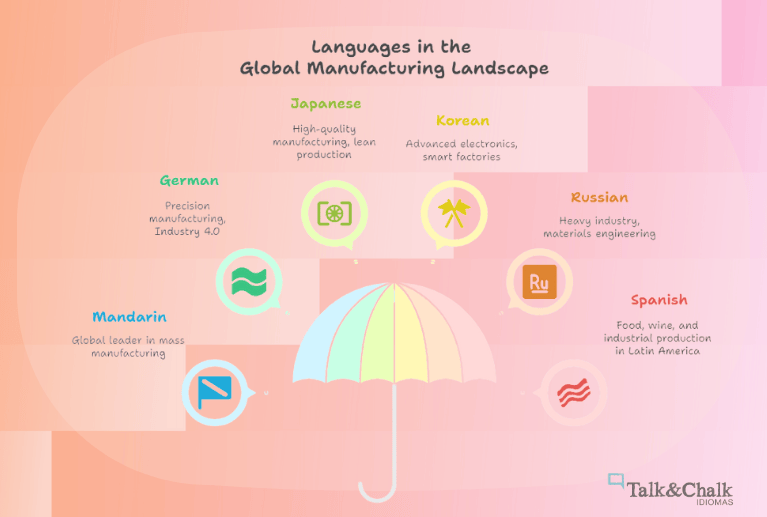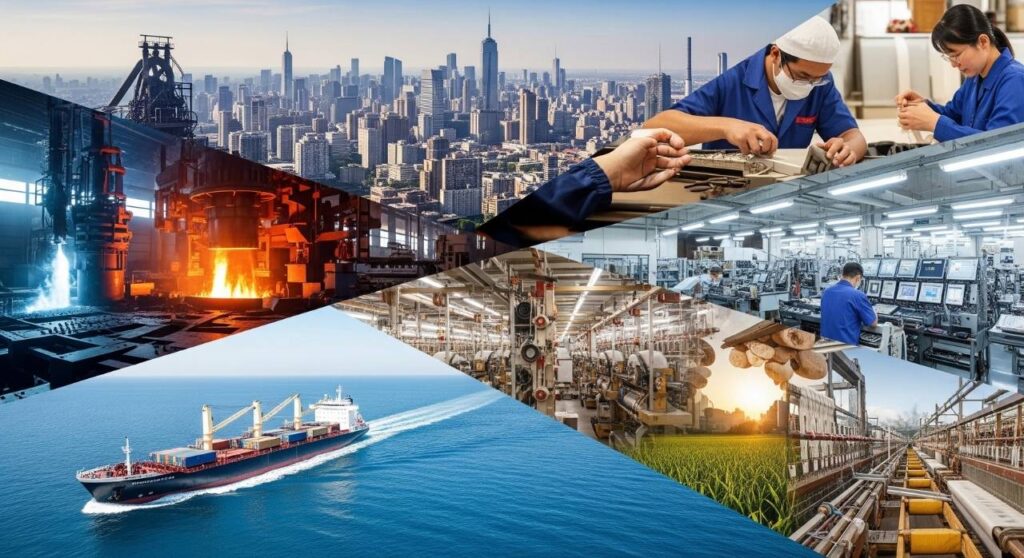Manufacturing is no longer a local endeavor. It’s a highly interconnected ecosystem where production, design, and supply chains span continents — and languages. Whether you’re involved in food processing, precision engineering, or next-gen electronics, the language you speak can help you access partnerships, technical knowledge, and industrial leadership across the globe. Languages in Global Manufacturing
Let’s explore the top languages shaping today’s manufacturing world:
Mandarin – As the global leader in mass manufacturing, China sets the pace in electronics, textiles, and low-cost production. Speaking Mandarin gives direct access to massive supplier networks and negotiation leverage.
German – Known for precision engineering and Industry 4.0, Germany leads in machine tools, robotics, and industrial automation. German is key for advanced manufacturing projects in Europe.
Japanese – Renowned for lean production and high-quality manufacturing, Japanese is essential in the automotive, electronics, and robotics sectors.
Korean – South Korea drives smart factories and advanced electronics (think semiconductors, displays, EVs). Korean opens doors to tech partnerships and innovation hubs.
Russian – A major player in heavy industry and materials engineering, Russian is vital in defense, aerospace, and metallurgy.
Spanish – Across Latin America, Spanish is the language of food, wine, and industrial production, especially in agribusiness and mid-scale manufacturing.
anguages for International Law


